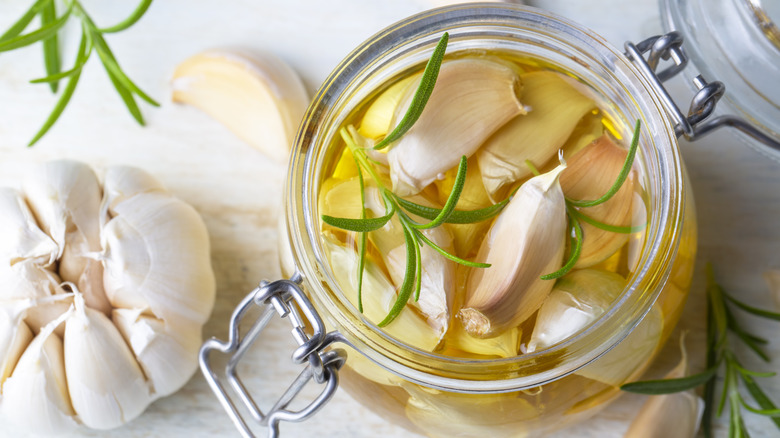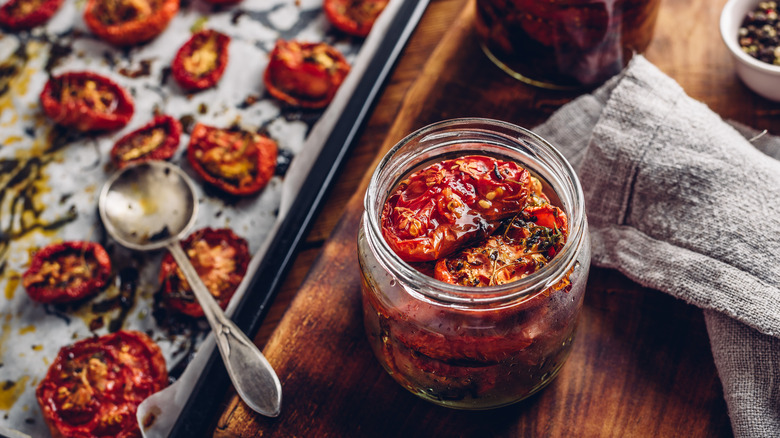Some Infused Olive Oils Have No Place In The Pantry. Here's Where To Put Them Instead
When it comes to cooking, olive oil is essential to every chef's culinary arsenal. Along with its ability to imbue a variety of recipes with a peppery, herbal flavor, olive oil also offers numerous health benefits, such as decreasing blood pressure and reducing one's risk of heart disease.
Among the more conventional cooking oils, many chefs these days are experimenting with infused olive oils, which feature additional ingredients for a more profound and more complex flavor profile. Garlic-infused olive oil is one of the most popular pairings, as these rich, earthy flavors interplay beautifully. This infusion is ideal for marinating meat, creating a homemade salad dressing, or even drizzling over tomato and cheese-laden bruschetta. For all the flavor benefits of garlic-infused olive oil, you must be mindful of how you store it. While pantry storage is fine for regular oil, garlic-infused varieties require special consideration to ensure they remain safe for consumption.
Why it's best to keep garlic-infused olive oil cool
It's recommended that most conventional types of olive oil are stored in areas of the home that are no hotter than 70 F, as higher temperatures can quickly decrease quality. The rules differ for garlic-infused oils because of the botulism risk. Garlic is what's known as a low-acid vegetable, meaning that it has a pH ranging from 5.3 to 6.3. As a result, improperly stored garlic can allow thgrowdium botulinum, which can cause botulism when consumed. Botulism is associated with significant health effects, such as nausea, abdominal pain, and vomiting.
Accordingly, olive oil containing garlic must be stored in the refrigerator instead of the pantry or cabinet. Keep in mind that storing olive oil in the fridge can cause it to harden a bit, but it's more than worth it to preserve your health and wellness. In addition to garlic-imbued olive oils, other infusions also require special care and consideration when it comes to storage.
Storage tips for other types of olive oil infusions
While garlic cloves make the perfect accompaniment to olive oil infusions, many other ingredients can be used to jazz up your preparations. When it comes to pasta dishes, adding sun-dried tomatoes to olive oil can enhance the flavors of recipes even further. However, these infusions have special storage requirements to help preserve them. Tomatoes don't carry a very high risk of contamination when it comes to foodborne illness due to their elevated acidity levels. Despite that, it's best to keep the preparation refrigerated to reduce a possible risk of bacterial growth and ensure your sun-dried infusion remains tasty for as long as you use it.
You can add fresh herbs, such as basil and rosemary, to this and other olive oil infusion recipes for a more complex flavor profile. Because fresh herbs can harbor bacteria over time when stored improperly, any infusions must be placed in the refrigerator, regardless of other ingredients. It also helps to make smaller batches of infusions containing fresh ingredients, as you can rest assured that you'll be able to use them before they go bad.


